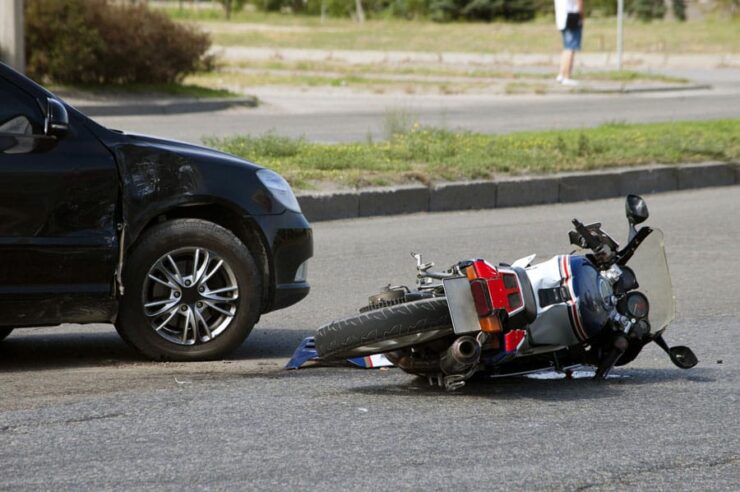A recall occurs when a motorcycle’s design or manufacturing defect is identified, posing potential safety risks to riders, passengers, and the general public. These recalls can range from minor issues that require a quick fix to severe problems that may lead to catastrophic failures, necessitating immediate action. These defects can manifest as issues in the braking system, fuel leaks, structural failures, or other mechanical or structural flaws. It is the result of stringent quality control and safety measures aimed at identifying and rectifying these issues to ensure the riders’ safety.
However, even with these safety protocols in place, accidents resulting from these defects occur, establishing a clear link between motorcycle recalls and personal injury claims. The National Highway Traffic Safety Administration (NHTSA) reported there were over 200 accidents in 2020, directly attributed to recalled motorcycles that were still in operation. The devastating impacts of these accidents often result in severe injuries or even fatalities. These situations become the grounds for personal injury claims, where victims seek justice and compensation for the losses and traumas endured due to accidents caused by these recalled motorcycles.

The Recall Process
-
Identification of Safety Issues
Safety issues are often first identified through routine checks, customer complaints, or incidents.
-
Notification Process for Owners
Upon confirmation of a defect, motorcycle owners are informed promptly. This communication is often facilitated through mail, email, or phone calls, ensuring owners are aware of the inherent risks and required actions.
-
Responsibilities of Manufacturers
Manufacturers bear the brunt of the responsibility during recalls. They are tasked with not only identifying and communicating the issues but also offering solutions, which can range from repairs to replacements.
Common Reasons for Motorcycle Recalls
-
Brake Failures
Brake failures stand as a common catalyst for recalls. When defective, the risk of an accident significantly increases, requiring immediate corrective actions.
-
Fuel System Issues
Problems within the fuel system, such as leaks or malfunctions, can lead to recalls. These issues pose not just operational but also significant fire risks, demanding urgent attention and resolution.
-
Structural or Design Flaws
Some recalls stem from structural or design flaws that compromise the motorcycle’s integrity and safety. These inherent defects can lead to catastrophic failures, endangering the lives of riders and others on the road.

Legal Grounds for Personal Injury Claims
-
Manufacturer Liability
Manufacturers can be held liable if a defect in their product, which should have prompted a recall or was improperly addressed during a recall, leads to an accident or injury. This liability is often strict, meaning the injured party may not need to prove negligence, just that the defect caused the injury.
-
Compensation Entitlement
Victims of accidents caused by recalled motorcycles are generally entitled to compensation for various damages. These may include medical expenses, lost wages, pain and suffering, and other related costs. The scope of compensation often hinges on the severity of the injury, the extent of the manufacturer’s liability, and the specific jurisdiction’s legal statutes. This is when consulting a personal injury law firm is imperative.
The Claims Process
-
Collecting Evidence
This may involve gathering medical records, photographs of the accident scene, witness testimonies, and any relevant documents that demonstrate the recalled motorcycle’s defect and resultant injury.
-
The Role of Attorneys
Attorneys assist in collecting and presenting evidence, negotiating with manufacturers or their insurance companies, and representing the injured party in court if necessary. Their expertise is instrumental in ensuring that victims receive fair compensation for their injuries.
-
Possible Outcomes
Settlements are common, where the manufacturer or their insurance company agrees to compensate the victim without a trial. However, some cases proceed to court, where a judge or jury determines the liability and compensation. The outcome heavily depends on the presented evidence, applicable laws, and the severity of the injury and defect.

Challenges in the Claims Process
-
Proving Negligence
This entails demonstrating that the manufacturer failed to uphold their duty of care in the design, manufacturing, or warning processes leading to the recalled motorcycle’s defect and the consequent injury.
-
Mitigating Factors
These may include the injured party’s own actions during the accident, whether they were aware of the recall, and if the motorcycle’s maintenance (or lack thereof) played a role in the accident.
Protecting Yourself as a Motorcycle Owner
As a motorcycle owner, your safety and the safety of others on the road hinge significantly on being proactive and informed. Ensure that your vehicle is registered to receive direct notifications from manufacturers and make a habit of checking the National Highway Traffic Safety Administration (NHTSA) database for any recalls or safety alerts. Alongside this, adopting stringent safety precautions such as regular maintenance checks, utilizing appropriate safety gear, and adhering to responsible riding practices can markedly reduce the risk of accidents. In the unfortunate event of an accident involving a recalled motorcycle, prioritize your well-being. Immediately seek medical attention, collect evidence at the scene if possible, and consult an attorney to explore your legal options and traverse the subsequent processes proficiently. Being prepared and informed is your first line of defense in ensuring safety and securing justice if the need arises.
Motorcycle recalls and personal injury claims support all aspects of road safety and legal justice. Motorcycle owners are empowered by staying informed, taking preventive measures, and understanding their legal recourse in the event of accidents related to recalled models. Through collective efforts in enhancing product safety, raising awareness, and streamlining the legal processes, we can mitigate risks, ensure justice for victims, and foster a safer environment for all road users.

